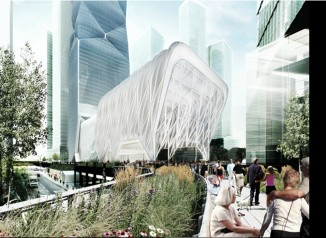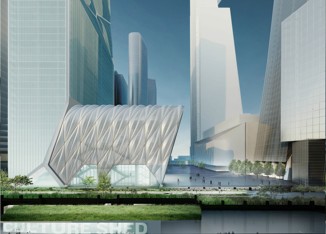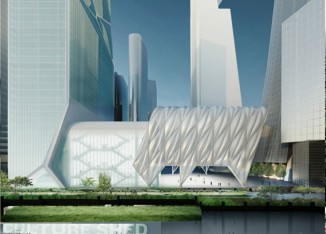Culture Shed
New York, NY (2013 – )
Culture Shed is a new, innovative institution that proposes nearly 50,000 sf of flexible space for exhibitions and other cultural events. Conceived as part of the Hudson Yards redevelopment district, the building, designed by D S + R, in collaboration with Rockwell Group, will stand at the north end of the High Line. Culture Shed will welcome a highly diverse local and international programming, spanning the fields of art, music, performance and fashion. The building design is distinguished by a moveable bonnet, a 100 foot tall enclosure, built on a rolling gantry system that permits the enclosure of an exterior plaza, more than doubling the ground floor footprint. Three column-free levels of gallery space provide flexible spatial configurations and technical support for exhibitions and performance of the widest possible variety.
Museoplan was asked by D S + R’s design team to help develop all of the art-related and exhibition space features of the new facility. Our charge includes comprehensive design review, the analysis of public movement throughout the building, the development of effective strategies for subdividing gallery floor plates, design advice on art delivery, handling and conservation spaces and on art lighting strategies. The consistent challenge of the project is finding the appropriate balance between programmatic flexibility and operational efficiency.
Photo Credits: Diller Scofido & Renfro







